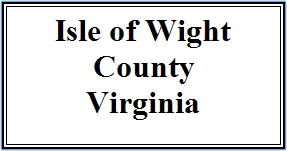
Worsley's Influences? |
 |
|
What aroused Worsley's interest in Virginia?In the early seventeenth century, Virginia colonisation became the latest, fashionable business venture to invest in for discerning gentry and merchants, who wanted to make their mark and earn distinction. In fact, it has close similarities with the recent investment craze in dot.com companies and the boom in internet companies, where people, many of whom have been media and sports celebrities as well as high-flyer City business people, have been eager to become involved and have a share in these so-called dot.com companies. However, now the 'Techno-bubble' has burst, many have found that the value of their assets has plummeted, leaving them with a considerable paper-value loss. Similarly, in the early years of the Virginia venture, many aristocracy, gentry and merchants found themselves facing a loss or certainly very little return for their share. Indeed, many ended up with land instead of a money dividend. Similar to the dot.com craze, the media had played a part in popularising the idea of investing in overseas colonisation in Virginia. Ever since the end of Elizabeth's reign there had been a fast growing literature on the subject of Virginia, exhorting people either to support the idea or to become settlers in the new colony. There were books that were outright advertising brochures, even propaganda, for the new colony in Virginia. Others were more like geographical/travel descriptions of the new land and its native inhabitants and their lifestyle. And further, the subject of Virginia entered into the cultural and literary sphere of life. There were increasing references to the colony in plays, poems and ballads of the time: indeed, the subject of Virginia often provided the context to the play or ballad. And so the initially desirable and fashionable nature of a stake in the Virginia venture played a part in a person's motivation to become involved. Like the dot.com companies, it conveyed an air of modernity, savoir-faire and vogue upon the investor. Sir Richard Worsley, being a man of learning, who liked his books, for which there is firm evidence, no doubt had come across books advertising Virginia, for which there is no firm evidence. However, there are two characters, with whom Worsley came into contact, who may be the key to Worsley's motivation . Both men were 'Captains of the Isle of Wight' and both had an interest in the New World but for very different reasons. One of them saw the new territories and their resources as a potential target for privateering, while the other man considered them as an important base for English colonies.
1. Sir George Carey.
Carey owned a number of ships: Commander (converted prize 1585), Swallow, Marlyn, Muscat. In 1591, Carey set forth a privateering venture to the West Indies under Irish. Comprised the Bark Burr (130 tons) under William Irish, the Swallow (35 tons) under Ralph Lee and the Content (30 tons) under Nicholas Lisle. Setoff in late March or early April. At end of May, they were between Dominica and Puerto Rica. At western end of Cuba, they were engaged in battle by four Spanish men-of-war. The Bark Burr was blown up by an explosion of her powder. The Content returned home while the Swallow joined another group of English privateers off Havana. However, as far as colonisation was concerned, "the quick dividends of privateering were obviously much more attractive than the dead loss of investment in Virginia". The Spanish had shown what they would do to settlements of other nations in the annihilation of French colonies in Florida. The English preferred to keep to the seas where they had more of a chance against their enemy. However Andrews also notes a marked difference in the character of the Elizabethan period of English activities in the west compared with that of James I. "In this early, projecting phase, however, the gentry played a larger and more active role than the merchants and characteristically they contributed a distinctly predatory and aggressive note to the movement". Later, it was merchants, like Robert Newland, who came to the fore to give the colonisation process a distinct mercantile character. 1. Elizabethan Privateering, K.R. Andrews.(Cambridge University Press, 1964). All quotes in the section on Carey are from this book.
| |||||||||